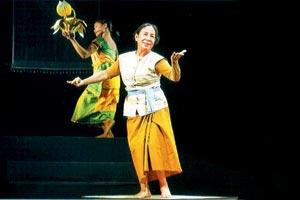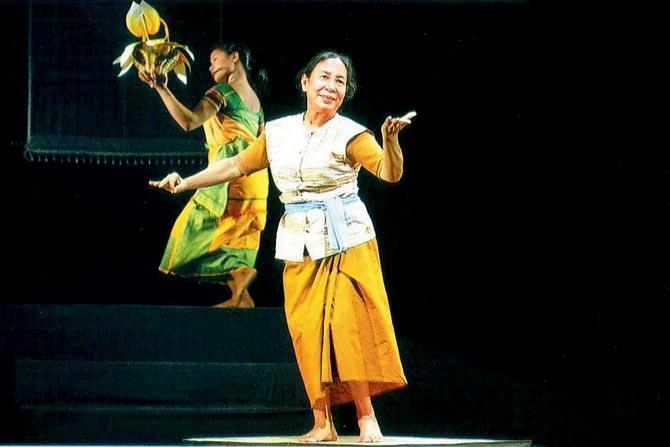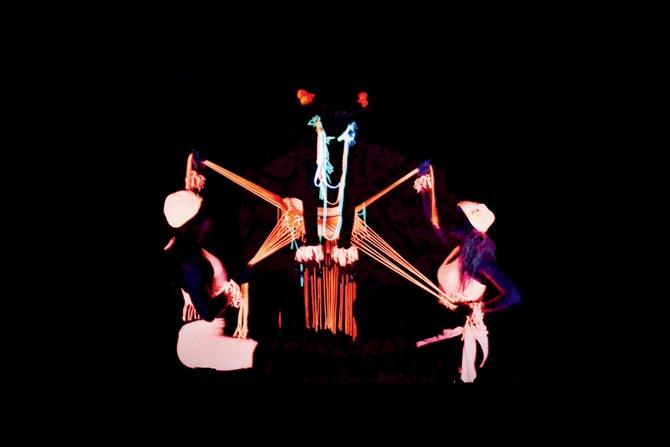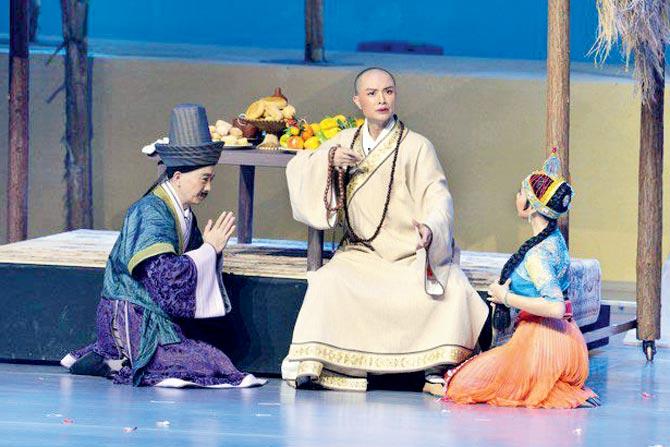With over 25,000 thespians presenting 450 shows across 17 cities, the debut edition of the Theatre Olympics in India reaches Mumbai


ADVERTISEMENT
There are perhaps as many approaches to presenting a play as there are theatre practitioners in the world. The language, methodology, training and ideology of the creator leave their unique imprint on the diverse canvas of theatre across the world. Yet, its depiction of the human condition in classic, modern, contemporary, experimental or abstract styles is what creates a common language between, say, a Belgian play and its Indian counterpart. To foster a dialogue between thespians from around the world, Greek theatre director Theodoros Terzopoulos took the initiative to start Theatre Olympics in Delphi in 1993. Since then, the theatre festival has travelled to Japan, Russia, Turkey, South Korea, China and Poland, before reaching Delhi in February for its debut Indian edition.
Organised in India by the National School of Drama (NSD), the Olympics feature 25,000 artistes performing in 450 shows, 600 ambience performances and 250 youth shows, across 17 cities. This weekend will mark the beginning of the 15-day long Mumbai chapter. "The strength and range of Indian theatre hasn't reached the world yet. We felt an international platform of this scale would help project Indian productions, and encourage creative exchange between theatre practitioners of various nationalities," says Professor Waman Kendre, director, NSD.
The call for entries was made months ago, and the selection committee received 1,000 plus applications. The plays that made it to the final list went through a stringent two-tier process. To make the craft of theatre-making accessible to young thespians, the Theatre Olympics also have an array of allied activities being coordinated by veteran theatre actor and director Ashok Banthia, "Senior artistes including Vijaya Mehta, Mahesh Dattani, Nitish Bharadwaj, Harish Bhimani and Akhilendra Mishra will talk about their journey in theatre," he says. We pick five plays to catch from the 28 national and international performances coming to the city.
From March 24 to April 8
At Ravindra Natya Mandir, Prabhadevi; Nehru Centre, Dr Annie Besant Road, Worli.
Log on to insider.in
Transcending norms
The story of a man's quest for freedom from the rigidity of societal norms and codified opinion, Dakghar is an adaptation of the eponymous play Rabindranath Tagore wrote in 1912. The play has been directed by the late Heisnam Kanhailal, who founded Kalakshetra in Imphal, Manipur. A doyen of Manipuri theatre, he played a pivotal role in the experimental theatre movement, and was honoured with several prestigious awards, including Padmashri and Padmabhushan.

A theatrical oeuvre
Black light theatre, a special theatre genre based on optical effects of darkness and UV lighting, originated in The Czech Republic in 1955. Sitting in Mumbai, this is perhaps the best introduction to the genre that audiences can get as Prague-based HILT Black Light Theatre packs 15 short pieces in one production called Phantom. Directed by Theodor Hoidekr, it celebrates the group's 10 years in the field.

Godly matters
Whether in India or abroad, we tend to take our beliefs and foibles wherever we go. The plot of Shri 420 revolves around a wealthy Indian expat and his unwavering faith in a godman. An Indian adaptation of Tartuffe, one of French playwright Molière's greatest comedies, it was presented to Australian audiences last year. The play has been directed by Saba Zaidi and Atul Tiwari.

A Chinese travelogue
Xuan Zang or Hsuan Tsang, the monk from China who embarked on a pilgrimage that meandered through India, is a historical figure known to many Indians. Audiences can now get a glimpse of Tsang, the mortal, as opposed to his typical depiction as a Buddhist monk in the traditional Chinese Yongju opera, Xuan Zang's Pilgrimage. Directed by Wang Xiang Yun, it takes the audience through the many landscapes he traversed before reaching India.

On the threshold
With a script featuring excerpts from writings by well-known writers including Gertrude Stein, Anne Carson, Pablo Neruda, Italo Calvino, and Chuck Mee, The Brink reflects on life-changing moments that make the world around us unrecognisable. An experimental production by Walkabout Theater Company, USA, it is inspired by Pina Bausch's choreography, Café Müller, and Anne Carson's The Gender of Sound.
Download the new mid-day Android and iOS apps to get updates on all the latest and trending stories on the go
 Subscribe today by clicking the link and stay updated with the latest news!" Click here!
Subscribe today by clicking the link and stay updated with the latest news!" Click here!






